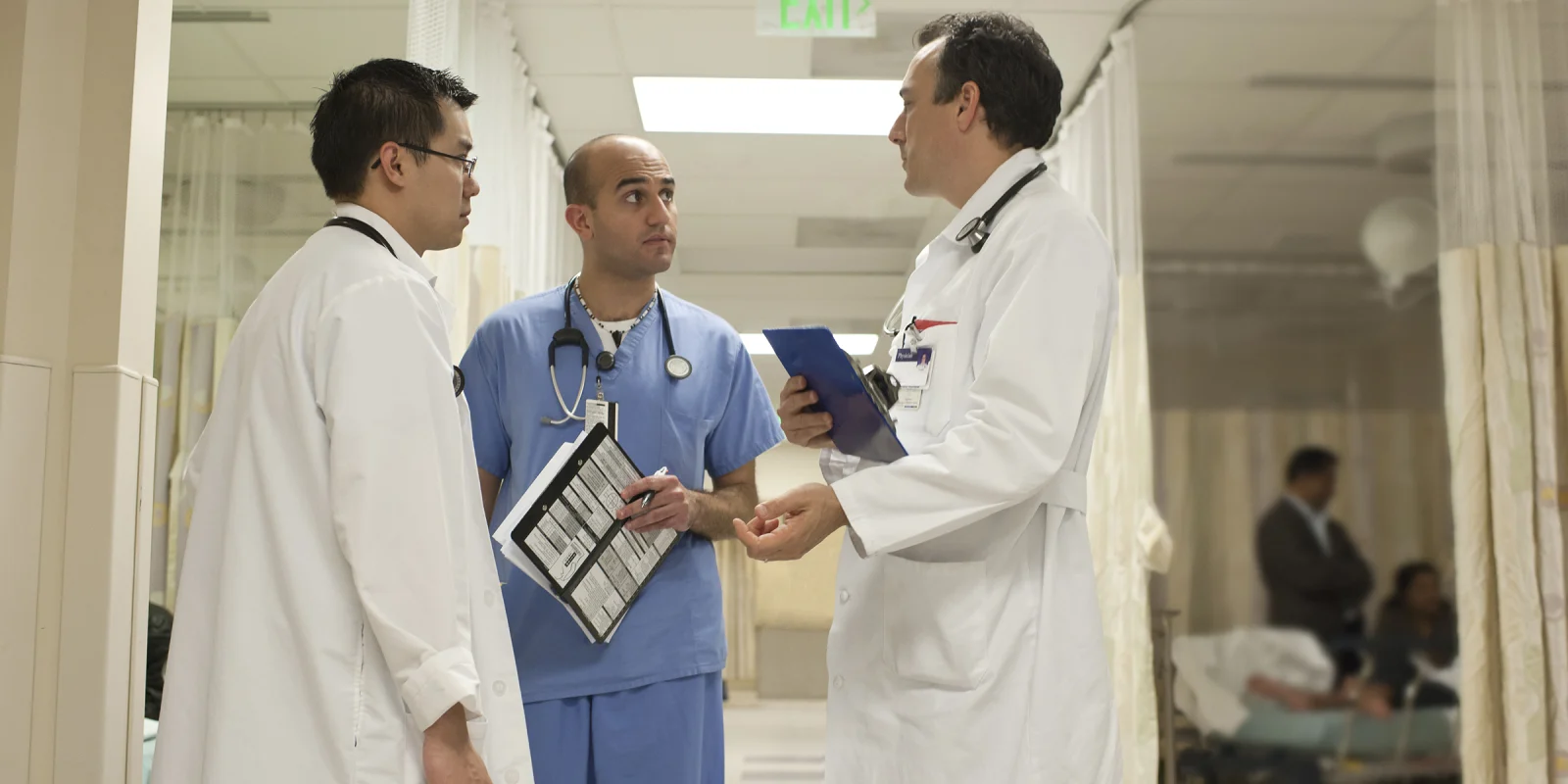The American Academy of Emergency Medicine Resident and Student Association recently published “An Open Letter to the Specialty of Emergency Medicine” outlining actions to address a surplus in the EM physician workforce, including advocating for the end of NP and PA EM fellowships. AAPA President Beth Smolko, PA-C, responded to the letter, stating that “this position is not in the best interest of patients and is out of touch with how medicine is practiced today.” PA members of Doximity also responded with their thoughts on the future of emergency medicine.
Jenifer Detert, PA, who has 17-plus years of experience practicing emergency medicine, thanked the AAPA for its response. She shared a recent ED shift in rural Minnesota where the hospital was staffed with just two RNs and herself, and where she was able to diagnose and save a patient with a hemorrhagic stroke. “Time is brain,” PA Detert said. “Experience made the timely diagnosis possible — not degree, numbers, letters, nor title associated with the care provided. Fellowship training did not exist 20 years ago.” Gregory Chase, fellow EM PA, praised her for her work: “Kept your head, advocated for the patient, and saved a life, and brain. You embody exactly what PA-C's do every day, every shift, every hour.”
Robert Booth, PA, described himself as “very pro PA residency training,” asserting that “[residency training] should be more common than it currently is.” PA Booth shared, “I can say without hesitation that my 12-month program greatly accelerated the learning curve. The best system out there is the program going on with the U.S. Army and Baylor ... And yes, we need to be pushing for more autonomy. PA autonomy should be based on years of experience similar to the way that Maine structured their regulations. Remember, the argument about patient safety is a red herring. This is about money, pure and simple.”
Roger Quinte, PA, voiced his opinion on the complexities of the PA role and the system they practice in. “Their issue is that there are no emergency medicine physician jobs available. They are concerned that they have spent all this time learning and mastering a level of skill that they won’t be able to use. I don’t blame them. The problem is our health care system and medical education (maybe all higher education). PAs do fill a purpose and, as long as they know they are not “doctors,” they provide care. Maybe it’s time all stakeholders reevaluate how we train and provide health care.”
Gregory Chase, PA — a seasoned EM PA — offered statistics on the EM physician workforce that could impact APPs. “Will ER-trained PAs and NPs be squeezed out of future ER positions? Over 34% of actively practicing EM physicians are 55 years of age and older. This aging physician population coupled with increased use of ERs by [people who are] uninsured will only increase demands for ER physicians in the coming years.”
Melissa Rudawski, PA, shifted the focus back to the patient and team. “I think we should be encouraging all medical providers to continue their education, either formally with residency programs or informally with certificate programs and continuing medical education. If we complete more training it's ultimately making the team better,” she shared with Doximity.
PA Rudawski said, “Shouldn’t we evaluate the individual in front of us? Evaluate their skill level, knowledge base, team skills, and autonomy — and not their title? I can say from experience [that] I have met excellent practitioners and suboptimal practitioners, title excluded ... It’s important to remember our patient-centered, team-based approach. Doctors, PAs, and NPs collaborate because we’re here to help the patient!”
How do you think the emergency medicine workforce will function in the future? Share your thoughts in the comments below.






